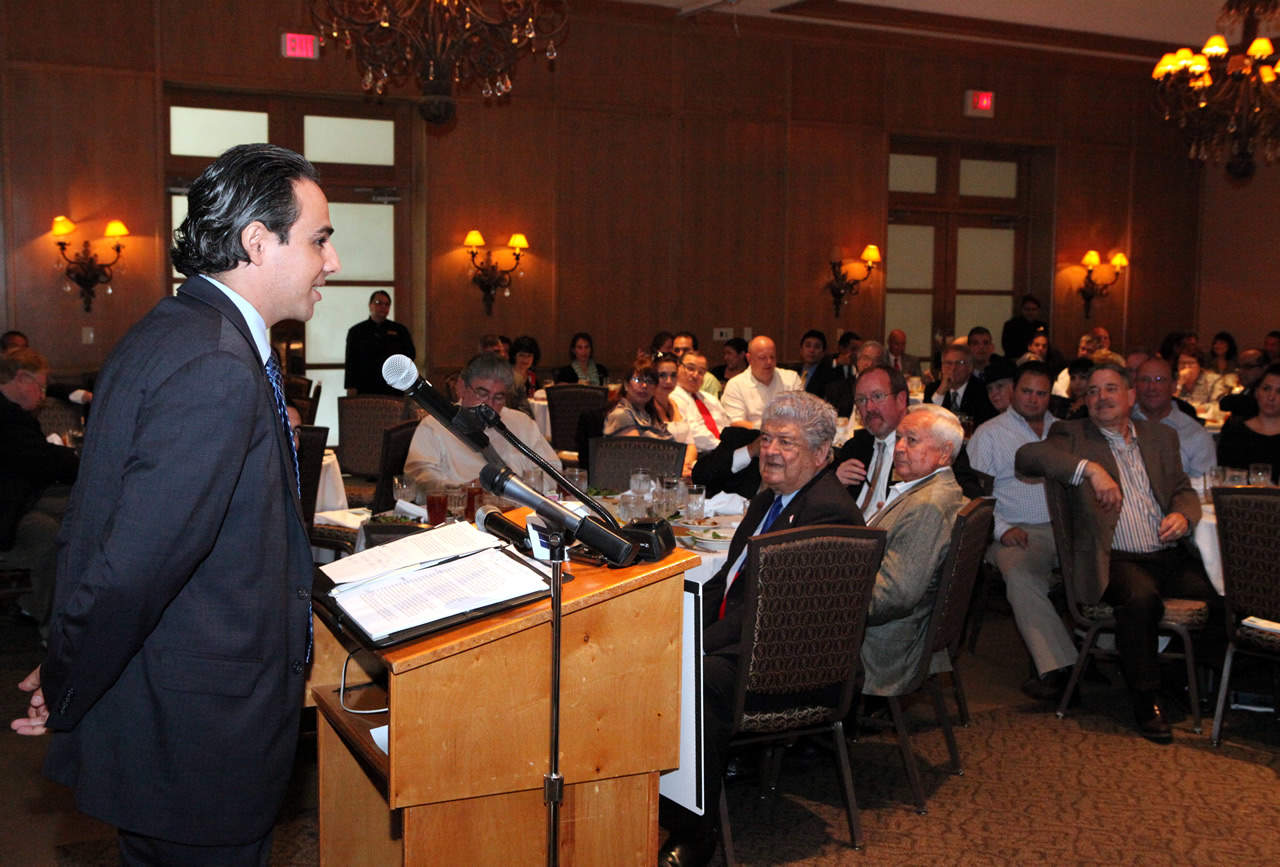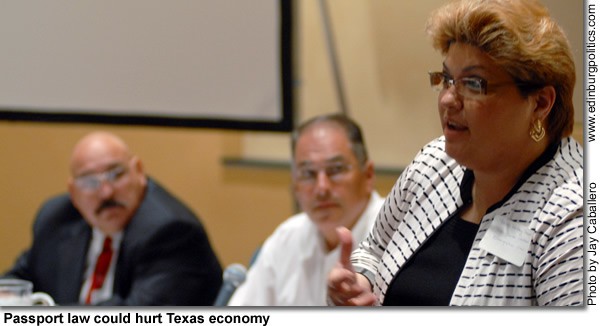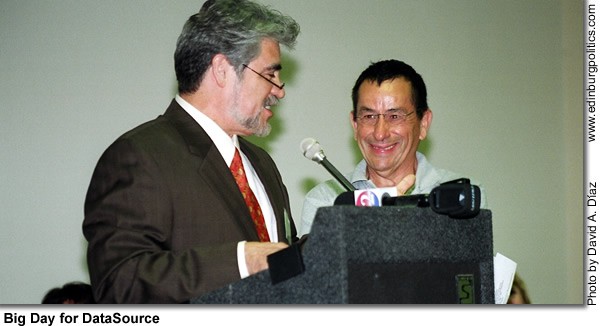Spanish-language content for Texas House of Representatives website moves forward with committee approval, reports Rep. Canales

Rep. Terry Canales, D-McAllen, featured on Tuesday, September 17, 2013, addressing the State Legislative Session Wrap-Up Luncheon, sponsored by the City of McAllen, the McAllen Economic Development Corporation, and the McAllen Chamber of Commerce, held at the McAllen Country Club.
Photograph By MARK MONTEMAYOR
With a growing number of state agencies providing detailed information in Spanish on their respective websites, Rep. Terry Canales, D-Edinburg, is working to create a bilingual presence on the Internet for the Texas House of Representatives. Canales has filed House Bill 288, which proposes that key components of the home page for the House of Representatives, as well as for the individual websites for each of the 150 state representatives, also have the capability to be read in Spanish. “It is both practical and beneficial to offer legislative information in both English and Spanish. As we seek to modernize our government and keep pace with the 21st century, I believe we must allow legislative information to be accessible in English and Spanish,” said Canales, who is fluent in English and Spanish. “The success of government depends on effectively communicating with the public and offering nondiscriminatory, accurate information.” On Wednesday, March 18, HB 288 was unanimously approved by the House Committee on Transparency and Operation with the recommendation that it be approved by the House of Representatives, then sent to the Senate for their action. Canales noted that the Texas Senate for the past 14 years has maintained and improved its Spanish-language version of its Internet web site, including the individual official websites of each state senator. That site is available online at http://www.senate.state.tx.us/Senado.htm. The House of Representatives should also break down language barriers, the lawmaker said. “People in the United States should speak English because that is the most spoken language of our country, but we do not want to disenfranchise those (who are more fluent in Spanish),” Canales said. “According to a 2011 Census survey, almost 30 percent of Texans speak Spanish. Of that figure, more than 42 percent of those Texans speak English less than very well.” The Center for Immigration Studies found that the Census Bureau recently released information from the 2013 American Community Survey (ACS), including languages spoken for those five years of age and older. “The new data show that the number of people who speak a language other than English at home reached an all-time high of 61.8 million, up 2.2 million since 2010,” Karen Ziegler and Steven A. Camarota reported in their October 2014 article, One in Five U.S. Residents Speaks Foreign Language at Home, Record 61.8 million. “The largest increases from 2010 to 2013 were for speakers of Spanish, Chinese, and Arabic. One in five U.S. residents now speaks a foreign language at home.” (http://cis.org/record-one-in-five-us-residents-speaks-language-other-than-english-at-home). In 2007, the Centers For Disease Control and Prevention (CDC), a federal agency under the management of the U.S. Department of Health and Human Services, released updated information, based on the 2000 Census, that detailed the languages spoken in U.S. and Texas. According to the CDC, English and Spanish, or predominantly Spanish, are spoken considerably by Texas residents at their homes, including in the major metropolitan regions not located along the Texas-Mexico border: Harris County (Houston): 898,885; Dallas County (Dallas): 539,570; Bexar County (San Antonio): 517,885; Tarrant County (Ft. Worth): 218,615; Travis County (Austin): 168,285; and Nueces County (Corpus Christi): 118,745. These figures do not include residents in those counties who spoke English only. Counties bordering Mexico, as expected, reported large percentages of their residents who spoke English and Spanish, or predominantly Spanish. “Providing more Spanish-language content on the House of Representatives websites also will help generate more commerce with non-English nations which do business with Texas, he added. “Texas bordering Mexico also makes it crucial that our largest trading partner have access to our Legislature and the information we have.” According to http://www.TexasWideOpenForBusiness.com, which is a maintained by the Texas Economic Development Corporation – an arm of the Office of the Governor – Mexico in 2014 was ranked number one with $102.6 billion in Texas exports, followed by Canada ($31.1 billion), Brazil ($11.7 billion), China ($10.9 billion), and the Netherlands ($8.9 billion) as the top five international trade partners. Exports are goods or services sent from Texas to another country for sale. Mexico also held the top spot as country of origin for Texas imports, accounting for more than $90.1 billion, or 29 percent, of Texas imports in 2014. China ranked number two for Texas imports ($45.4 billion), followed by Saudia Arabia ($19 billion), and Canada ($17.4 billion), added TexasWideOpenforBusiness.com. Imports are goods or services sent from another country to Texas for sale.The public hearing, in its entirety, is available on the Internet by logging on to http://www.house.state.tx.us/video-audio/committee-broadcasts/ , then scroll down to “03/11/15 Government Transparency & Operation” and click the committee’s name.
•••••• (more…)
























